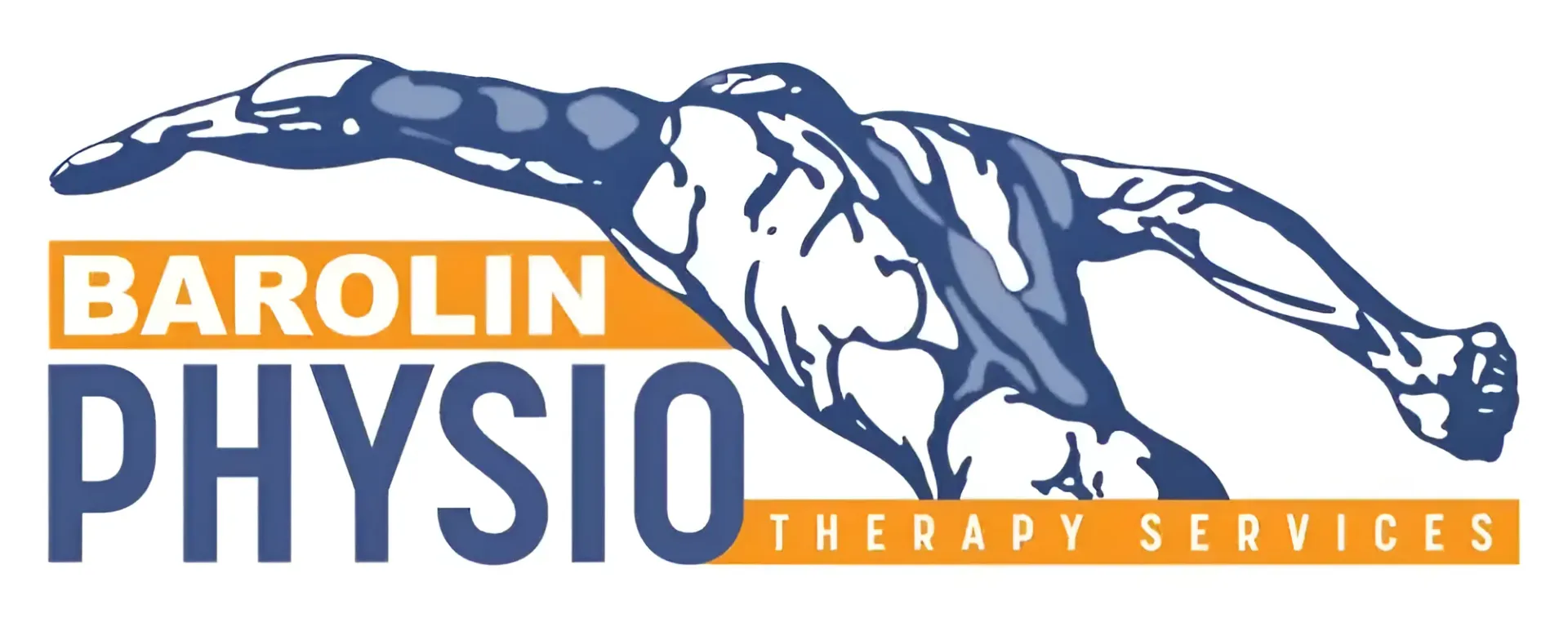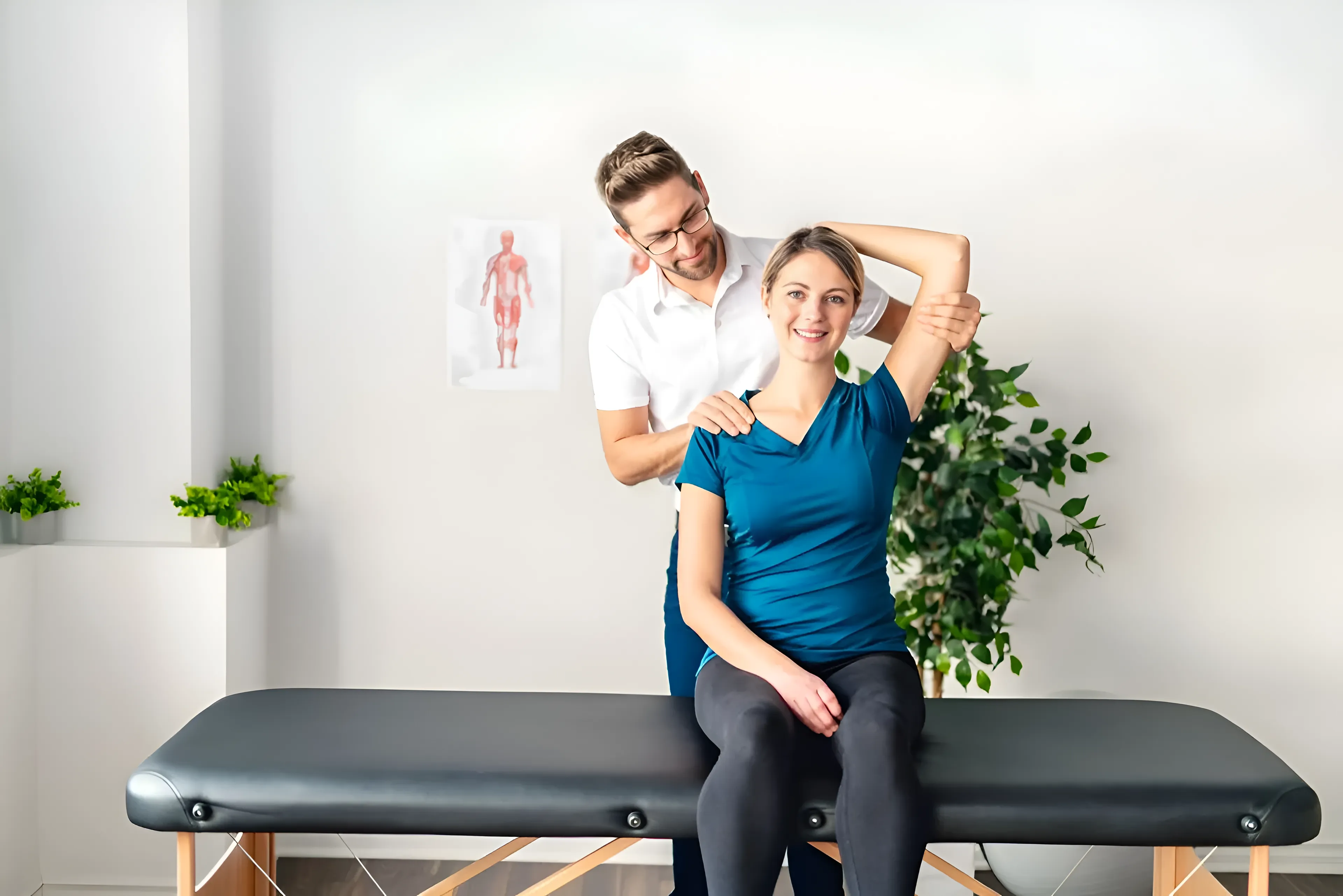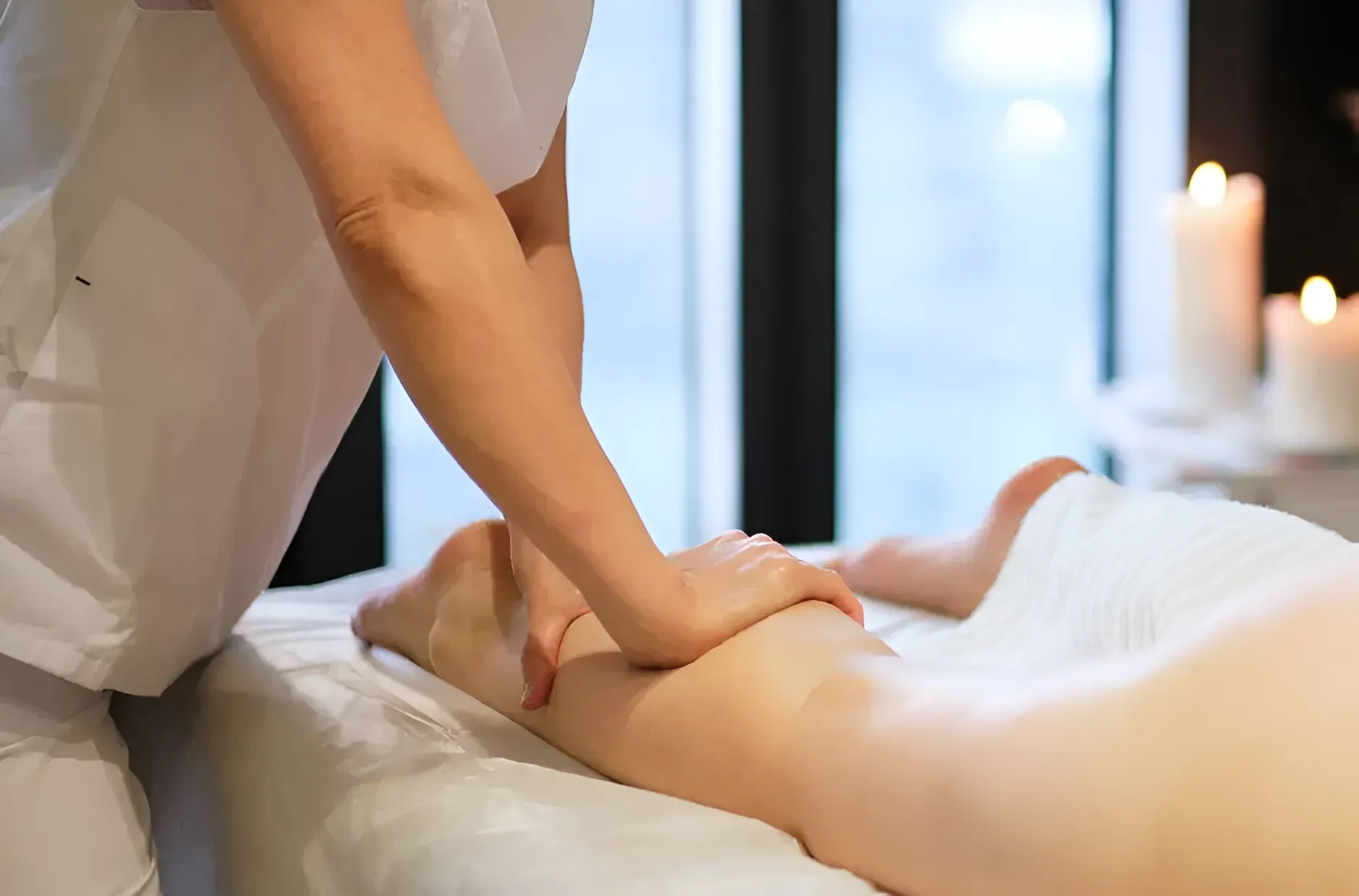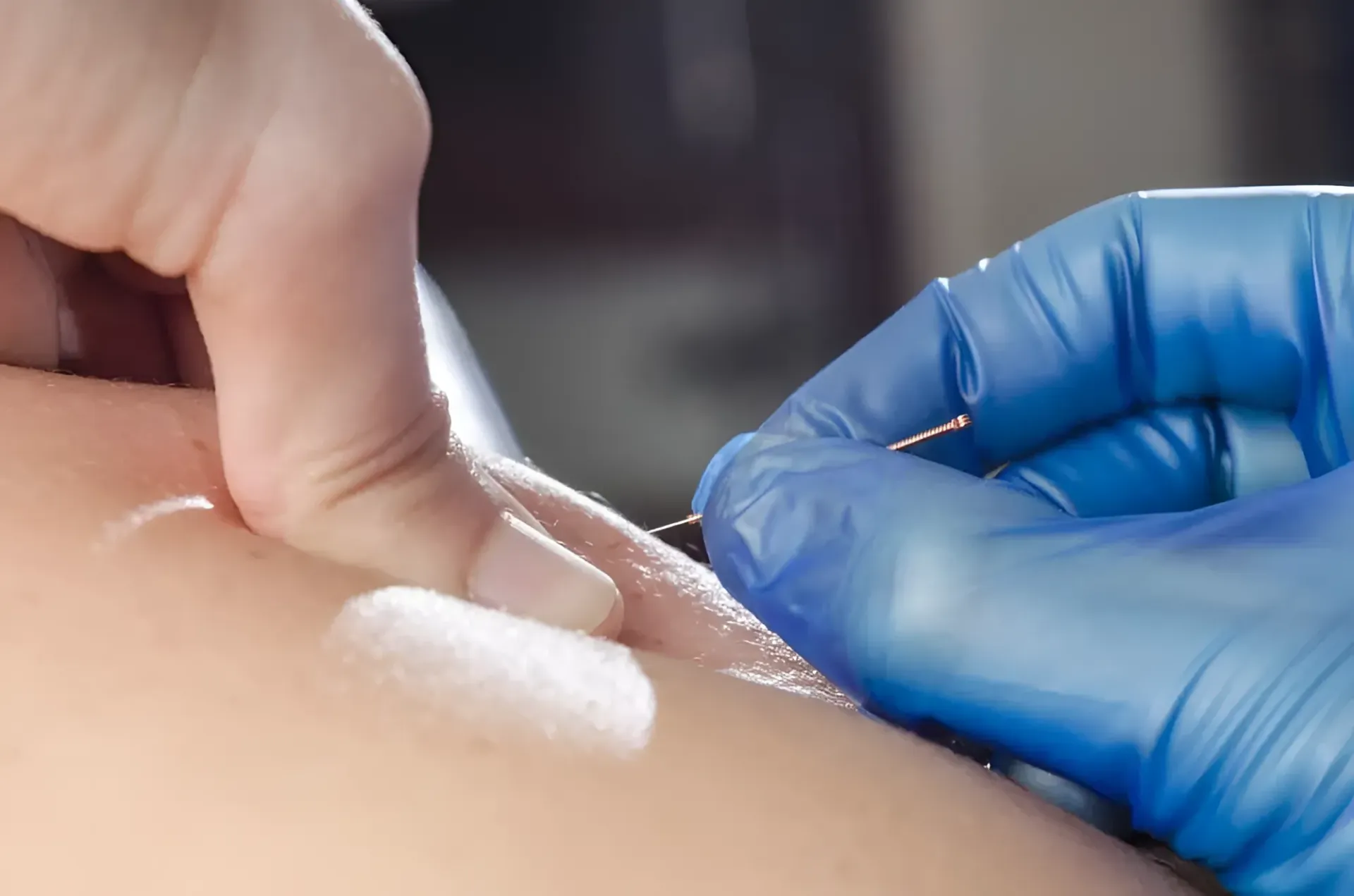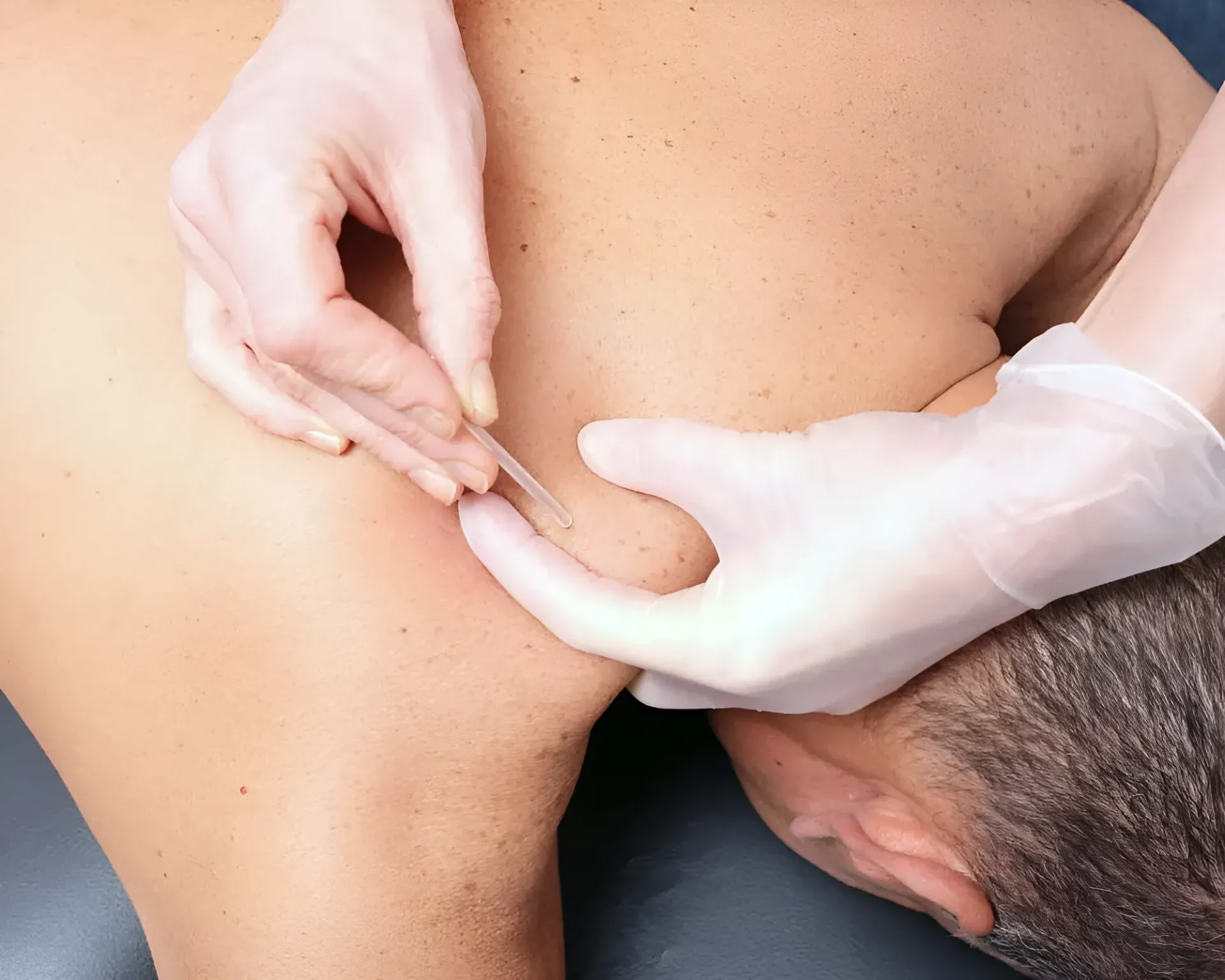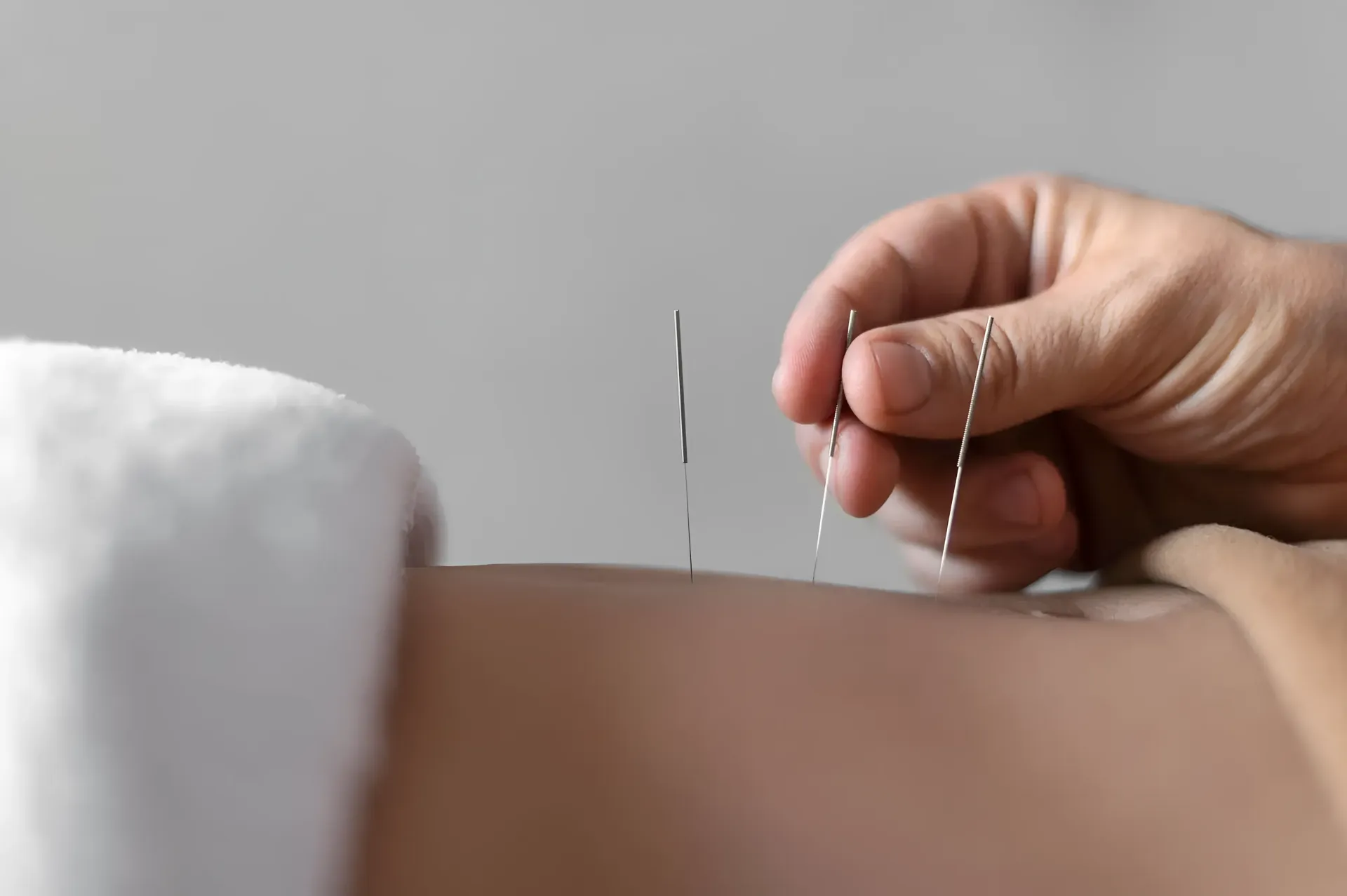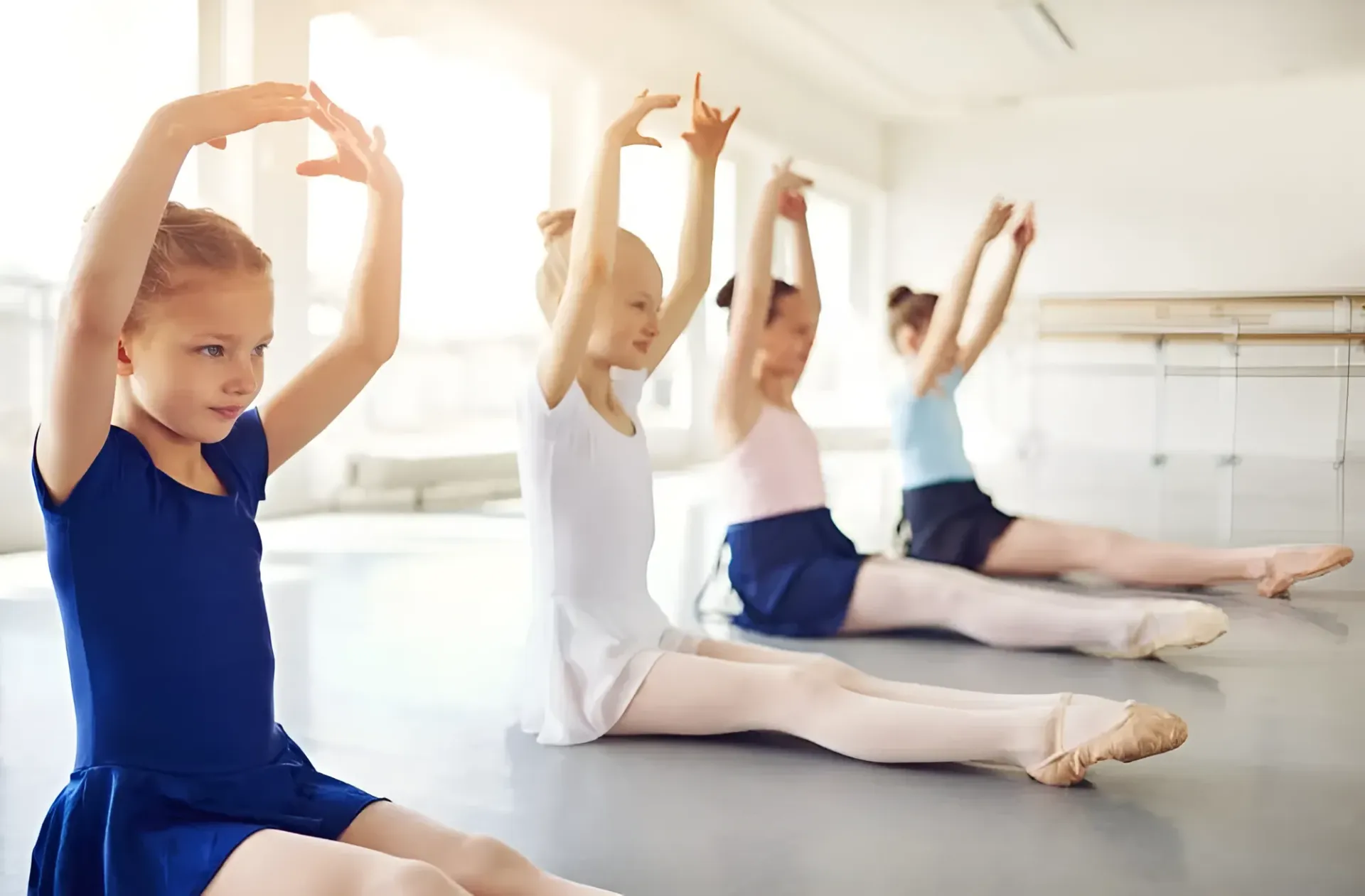Physiotherapy Bundaberg
Now Welcoming New Patients — No Referral Needed!
20+
years supporting locals
100%
locally owned clinic
7+
specialised services offered
2
on-site physiotherapists
Musculoskeletal Injuries & Disorders
Musculoskeletal conditions affect the muscles, bones, tendons, nerves and soft tissues, often developing from overuse or repetitive movement. Common examples include repetitive strain injury (RSI) and occupational overuse syndrome (OOS), which are frequently seen in office workers, tradies and professionals performing repetitive tasks.
Some of the most common musculoskeletal issues we treat include:
- Tendinitis
- Bursitis
- Ligament sprains
- Muscle & tendon strains
- Carpal tunnel syndrome
At Barolin Physiotherapy, our team can help relieve pain and discomfort while also addressing the underlying causes. We provide tailored treatment plans that may include posture correction, lifestyle advice, flexibility exercises and strength training to support long-term recovery and prevention.
How Can We Help?
At Barolin Physiotherapy, we use a range of evidence-based treatments to support your recovery and keep you moving well:
- Exercise therapy to build strength & mobility
Tailored exercise programs help restore movement, improve strength and boost flexibility. Whether it’s resistance, aerobic or mobility training, we design a plan that suits your goals. - Joint mobilisation for better movement
Gentle hands-on techniques reduce stiffness, improve range of motion and help your joints move more freely. - Soft tissue massage to ease tightness
Massage targets muscles, tendons and ligaments to relieve tension, reduce soreness and speed up recovery after injury or overuse. - Balance & coordination training
Specialised exercises can help improve stability and body awareness, making daily activities easier and reducing your risk of falls. - Equipment prescription
From braces and supports to mobility aids, we’ll recommend the right equipment to assist your treatment and maximise results.
Dry Needling Treatment
Dry needling (also called trigger point dry needling or intramuscular stimulation) is a safe and effective technique used by our physiotherapists to target muscle pain and tension. By inserting fine, sterile needles into specific trigger points, we can help release tight muscles and restore normal function.
Dry needling may help with:
- Muscle spasms & myofascial trigger points (“knots”)
- Pain relief & reduced inflammation
- Headaches & migraines
- Improved healing & immune response
- Increased blood flow
- Reduced muscle tension
- Tendonitis recovery
Explore the therapeutic benefits of dry needling at Barolin Physiotherapy Services in Bundaberg. Book a consultation to see if it’s right for you.
About Dry Needling
Is it safe?
Yes. Dry needling is very safe when performed by a qualified physiotherapist. The needles are sterile, single-use and placed precisely. Patients of all ages can benefit.
How long does a session take?
Most sessions last 20–30 minutes. Your physio may also combine dry needling with stretching, mobility or strengthening exercises for the best results.
Does it hurt?
The needles are extremely fine — much thinner than those used for vaccinations. You may feel a quick “twitch” or cramp-like sensation in the muscle that usually passes within seconds.
Dry Needling vs Acupuncture
While both treatments use fine needles, they are based on different principles:
- Dry needling targets myofascial trigger points to reduce pain and restore muscle function.
- Acupuncture is based on traditional Chinese medicine, using points along energy meridians to balance the body’s energy flow.
All our physiotherapists are trained in dry needling and will ensure your treatment is safe, comfortable and effective.
Contact us today on 07 4153 4333 to find out more.
Personalised Exercise Programs
We also run group exercise classes designed to support your recovery and help you stay active. These sessions are supervised by our physiotherapists, tailored to your needs and a great way to exercise in a supportive environment.
Interested in joining a class? Call our team on 07 4153 4333 for more info or to find out which class is best for you.
Seniors Class
Our Seniors Group Class is designed to help older adults improve strength, balance and confidence — with a strong focus on falls prevention. Led by our experienced physiotherapists, these sessions are safe, supportive and tailored to suit all ability levels.
This class is perfect if you want to:
- Reduce your risk of falls
- Improve strength and mobility
- Stay active and exercise safely in a supportive environment
Class details:
- Mondays & Thursdays at 9:00am
- 45-minute sessions
- Includes stretching, strengthening & functional exercises
- Supervised by a physiotherapist with ongoing feedback
Classes are run in our private, fully equipped gym, where you’ll receive expert guidance every step of the way. Whether you’re new to exercise or need modifications due to injury, our memberships make it easy to stay active safely.
Talk to our friendly team to learn more or get started today.
Work Cover Claims
Workplace injuries can happen anywhere. If you’re covered by WorkCover Queensland, you may be eligible for physiotherapy support at our Bundaberg clinic.
What you need to know:
- Once approved and with the right paperwork, you’ll receive six initial physiotherapy sessions.
- If additional care is needed, we’ll liaise with your WorkCover claims officer to extend your treatment.
Our goal is to help you recover safely and return to work with confidence.
Contact us today to discuss your WorkCover-approved physiotherapy.
Pre-Pointe Assessments
Progressing to en pointe is an exciting time for any ballet dancer. However, while a dancer may be mentally ready, they may not be physically ready. Booking a pre-pointe assessment will help correct any issues that could inhibit a dancer’s performance, including foot control, pelvic stability and turnout range.
Once the dancer has completed a consultation, our physiotherapists will prescribe an at-home plan to help correct any limitations. A re-assessment may be required after a few weeks to ensure efficient progression.
For the more experienced ballerina, you may notice change to your form. Our physiotherapists work with ballerinas of all ages and experience levels, helping them achieve the results they want for their art form.
Frequently Asked Questions
What should my child wear to their appointment?
Comfortable, loose-fitting clothes are best. Shorts and a T-shirt work well. If you’re unsure, our front office staff will be happy to advise when you book.
What is physiotherapy?
According to the Australian Physiotherapy Association:
“Physiotherapy extends from health promotion to injury prevention, acute care, rehabilitation, maintenance of functional mobility, chronic disease management, patient and carer education and occupational health.”
What happens at the first appointment?
Your child’s first session is a consultation where we’ll ask about their medical history and assess their movement. Depending on their needs, we may guide them through some simple mobility tasks. Our physiotherapists will explain everything clearly and outline a treatment plan going forward.
Enquire Now
Thank you for contacting Barolin Physiotherapy Services.
We will get back to you as soon as possible.
Oops, there was an error sending your message.
Please try again later.
Paediatrics Physiotherapy
Paediatric physiotherapy focuses on helping children and young people build strength, coordination, balance and confidence in their movement. At Barolin Physiotherapy, we work with children living with neuromuscular conditions, ASD, intellectual and physical disabilities, developmental delays and other challenges.
Our goal is to create a supportive, family-centred environment where your child can grow, learn and thrive.
How It Works
- Assessment – We begin by looking at your child’s motor skills and overall development.
- Goal Setting – Together with you and your child, we set meaningful, family-centred goals.
- Therapy – Using the power of play, our sessions are fun and engaging, designed to support your child’s motor development while keeping them motivated.
What We Can Help With
- Motor skill development (crawling, walking, running, jumping, ball skills)
- Developmental delays
- Coordination & balance
- Core strength
- Low muscle tone
- Posture & movement control
